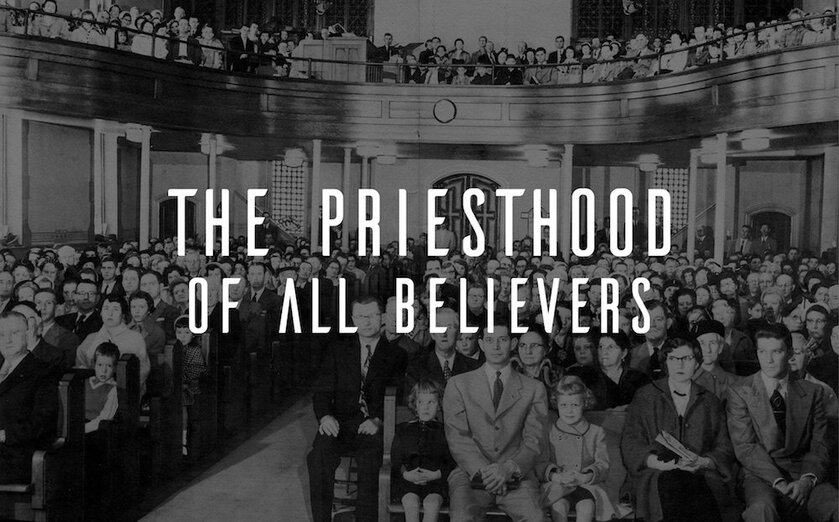Unveiling the Transcendent Christ Beyond Tradition: The Heart of Jesus and the Weight of Truth
John 7:25-26
Some of the people of Jerusalem therefore said, "Is not this the man whom they seek to kill? And here he is, speaking openly, and they say nothing to him! Can it be that the authorities really know that this is the Christ?"
What an amazing question.
Did they know?
In John 7:25-26, we find the people of Jerusalem whispering among themselves, puzzled by a paradox. Jesus, the man they knew the authorities wanted to kill, was speaking openly in the temple courts. Yet, no one stopped Him. No arrest was made. And it occurs to these people that they know the traditional thoughts about the coming Messiah, that he would suddenly appear. And so it didn't make sense to them that the Messiah would be Jesus because he didn't suddenly appear they knew exactly who he was, or so they thought. It had never occurred to them that their understanding, or their tradition could be mistaken.
So Jesus explains the situation for them:
John 7:27-29
"But we know where this man comes from, and when the Christ appears, no one will know where he comes from." So Jesus proclaimed, as he taught in the temple, "You know me, and you know where I come from. But I have not come of my own accord. He who sent me is true, and him you do not know. I know him, for I come from him, and he sent me."
So that's the thing about traditions, it's the sort of thing that is started by someone and then picked up for a generation or two, until it ultimately persists becoming the thing everyone does. Even though no one remembers why they do it, or the true significance of the thing.
In John 7:25-26, the people of Jerusalem are caught in a moment of confusion and curiosity. They see Jesus' teaching boldly in the temple, despite the authorities’ desire to kill Him. But their question is quickly overshadowed by a deeper issue, their reliance on tradition. They believed the Messiah would appear suddenly, His origins a mystery (John 7:27). Since they thought they knew Jesus’ background, they dismissed Him as the Christ. Their tradition blinded them to the truth standing before them. And we see this even today in so many religious traditions. The confusion, the uncertainty, all of it breeds theological blindness.
Jesus confronts the crowd’s misplaced trust in tradition with a piercing truth, he was sent by God, the One they claimed to worship but did not truly know. This moment reveals the danger of clinging to traditions without questioning their truth. The people’s belief about the Messiah’s mysterious origin wasn’t rooted in Scripture but in human tradition, passed down until it became unquestioned "truth."
Traditions can be beautiful when they point us to God, but they become stumbling blocks when they obscure His revelation. The crowd’s reliance on what they thought they knew kept them from recognizing the Messiah they longed for. Imagine how Jesus felt in that moment.
Jesus’ words in this passage carry both authority and sorrow. He longed for the people to see Him for who He was; the One sent by the Father, the fulfillment of all their hopes. But their reliance on what they thought they knew kept them from recognizing the very Savior they longed for. It’s no wonder that elsewhere, Jesus laments, "O Jerusalem, Jerusalem… How often would I have gathered your children together as a hen gathers her brood under her wings, and you were not willing!" (Matthew 23:37). His heart broke for a people so close to the truth yet so far from embracing it.
And here's the other thing about traditions, very often they are grounded in the scripture somewhere. It's likely that these folk, in the time that Jesus walked the earth, were referencing Isaiah chapter 53 in regard to the coming Messiah which describes the Messiah as a suffering servant whose appearance was humble and unexpected. The people took this to mean His origins would be unknown, twisting a partial truth into a stumbling block that kept them from recognizing Jesus as the Christ.
So we can see how scripture interpretations will change generations of theological teaching. Isaiah 53 beautifully points to Jesus, describing Him as despised, rejected, and bearing our sorrows (Isaiah 53:3-5). But the crowd’s interpretation missed the mark, focusing on mystery rather than the reality of His divine mission and humble incarnation.
So here we have Jesus, Yeshua, the Messiah, Christ, King of the Universe, standing before them. The Transcendent One, speaking in terms both past and present tense, because he is transcendent. But the crowd cannot recognize the transcendence for the man standing before them. I suppose it's the age-old adage of not being able to see the forest for the trees.
The Pharisees determined to send soldiers to arrest him. But before that can happen, Jesus continues to confuse the crowd by speaking in spiritual terms:
John 7:33-36
Jesus then said, "I will be with you a little longer, and then I am going to him who sent me. You will seek me and you will not find me. Where I am you cannot come." The Jews said to one another, "Where does this man intend to go that we will not find him? Does he intend to go to the Dispersion among the Greeks and teach the Greeks? What does he mean by saying, ‘You will seek me and you will not find me,’ and, ‘Where I am you cannot come’?"
The people, still thinking in physical terms, speculate about earthly destinations, perhaps the Dispersion among the Greeks? They miss the profound truth: Jesus is speaking of His return to the Father through His death, resurrection, and ascension. His words point to a spiritual reality they cannot yet access because their hearts are closed to Him.
Jesus speaks from a plane beyond our reach, revealing the gap between human understanding and divine truth. Like the crowd, we too can miss Jesus’ transcendence when we reduce Him to fit our expectations; a great moral teacher, a significant historical figure, or a cultural icon. The confused people aren't wrong because the truth is he is all these things. He is all these and infinitely more: He is the eternal Word, the Savior who invites us into communion with the Father.
This passage challenges us to look beyond the "trees" of our assumptions and traditions. Are we seeking Jesus on His terms, open to His spiritual reality, or are we stuck in earthly thinking, unable to see the forest of His divine glory? His heart, as seen in His lament over Jerusalem (Matthew 23:37), longs for us to recognize Him and follow Him into the life He offers.
Food for thought:
Where might you be limiting Jesus to fit your own expectations or traditions, missing His transcendent reality?
Spend time today meditating on John 7:33-36, asking the Holy Spirit to reveal a spiritual truth about Jesus that you’ve overlooked. Write down any insights and commit to one step of faith; perhaps praying for deeper trust or sharing this truth with someone else.
In today's devotion we can learn that Jesus’ transcendence requires us to seek Him through faith, guided by Scripture and the Spirit, not merely human logic, temple mounts, cathedrals, icons, or traditions. These things, these rituals and practices can be beautiful when they point to Christ, but they become barriers when they replace Him. We risk missing Jesus when we confine Him to our rituals, buildings, or intellectual frameworks. Jesus invites us to seek Him beyond the tangible, to encounter Him in the Spirit through the truth of Scripture. Isaiah 53, which the crowd likely misinterpreted, points to His suffering and glory (Isaiah 53:3-5, 11-12), but only faith unlocks its meaning. Jesus transcends the ritual. Jesus transcends our buildings. Jesus transcends the way things have always been done. To know the transcendent Christ, we must let go of anything that obscures Him and pursue Him with open hearts, trusting the Spirit to reveal His glory.
It's interesting too because this is what's behind so much of the pleasure mania that we see manifesting itself in our society today. In a world obsessed with instant gratification, high speed access to everything, endless binging of entertainment, material excess, and fleeting highs; people chase what feels good, mistaking it for meaning. Like the crowd, they’re distracted by the tangible, unable to see the transcendent Christ who offers true fulfillment. Pleasure-seeking becomes its own ritual, a modern tradition that promises life but delivers emptiness. When we prioritize sensory highs over spiritual depth, we mirror the crowd’s error. And the crowd carries that spirit of materialism into the church and demands it from the church.
This materialistic mindset, which we’ve seen creeping into the church as a demand for comfort and worldly success, finds a parallel in the apostle Paul’s teaching.
In Ephesians 5:18, Paul contrasts two states:
"And do not get drunk with wine, for that is debauchery, but be filled with the Spirit."
Drunkenness, a pursuit of fleeting pleasure through excess, represents the world’s attempt to fill a spiritual void with material means.
What are we looking for?
Peace of mind? A capacity to cope? A fullness and a satisfaction?
It's all dealing with the same issues.
The confused Jerusalem crowd with its material mindset is limited to earthly speculation, missing His spiritual truth. Yet, Jesus doesn’t leave them, or us, in that confusion.
In John 7:37-38, He offers a clarion call:
"If anyone thirsts, let him come to me and drink. Whoever believes in me, as the Scripture has said, ‘Out of his heart will flow rivers of living water.’"
Here, in its simplest terms, is the gospel: Jesus, the transcendent Christ, invites all who thirst to come to Him and find life. That's it, the whole gospel in a nutshell. God understands your need. Come and drink from Him. Come and he will fulfill that need. Not only will he fill you, but you will overflow with his love and peace beyond all your confused desires.
Jesus’ call in John 7:37-38, given during the Feast of Tabernacles’ water-pouring ceremony, evoked Old Testament imagery of God’s provision (e.g., Isaiah 12:3, 55:1). The "rivers of living water" refer to the Holy Spirit (John 7:39), who flows from faith in Christ, fulfilling the Messiah’s role in Isaiah 53:11-12 to justify and heal.
Final thought:
The apostle John pulls it all together for us, just in case we missed it.
John 7:39
"Now this he said about the Spirit, whom those who believed in him were to receive, for as yet the Spirit had not been given, because Jesus was not yet glorified."
Speaking from the benefit of many years later, in the wisdom of time John explains what he now knows. The "rivers of living water" are the Holy Spirit, given to those who believe in Christ, fulfilling the expectant Old Testament promises. The Spirit flows from faith in Jesus, the Messiah of Isaiah 53, but this gift awaits Jesus’ glorification, His death, resurrection, and ascension, when He returns to the Father and sends the Spirit (John 16:7).
To know Him, we must come in faith, guided by Scripture and the Spirit, letting go of our material fixations or ritualistic barriers. Jesus’ heart longs for us to drink and be filled, becoming conduits of His living water in a thirsty world.
Action Step:
Reflect on a "thirst" you’ve tried to satisfy apart from Jesus, perhaps through material gain, pleasure, or ritual. Pray for the Holy Spirit’s filling and that He will help you find His call, guided by Scripture, to know the transcendent Christ and share His life with a thirsty world.




















